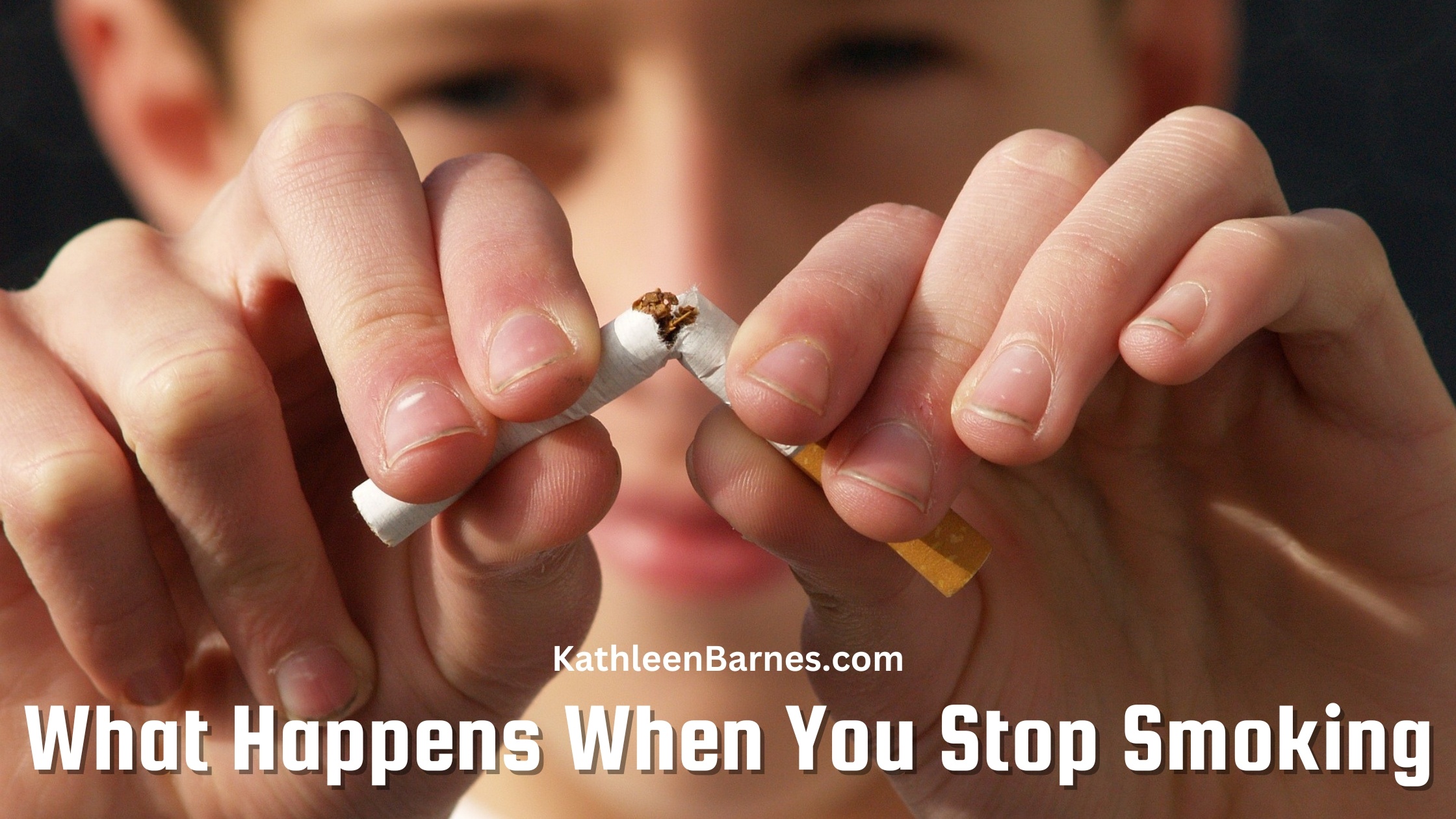If quitting smoking is on your to-do list, congratulations! You couldn’t possibly do anything more

beneficial for your health.
I’m the first to understand this is no simple task. It has been said that stopping smoking is more difficult that breaking a cocaine habit.
That means you’ll need all the help you can get including a buddy, a support group and even drugs, if necessary.
You all know how opposed I am to most pharmaceuticals, but the health risks of smoking are so great that I can enthusiastically endorse anything you need in order to stop.
Here is something to think about: Your body begins to recover quite literally within 20 minutes of the moment you take your last puff.
Here is a list of the impressive benefits you can gain day-by-day when you quit. Use these to reinforce your choice to become healthier:
Week 1 When You Stop Smoking
What’s going on in your body: Blood pressure and pulse have returned to normal 20 minutes after your last cigarette. Twelve hours after that last cigarette, the carbon monoxide level in your blood drops to normal.
What you should do now: Calm your cravings. Studies show nicotine cravings are strongest in the first 6 weeks of quitting, so begin using patches, gums and even prescription medications, if necessary, from Day One. Drink lots of water and juice to help flush nicotine out of your system, which takes about 5 days.
Month 1
What’s going on in your body: Lung function improves 30%. Taste and smell are enhanced. Energy increases.
What you should do now: Continue to calm your cravings by using gums, patches, etc. Plus, begin to make behavioral changes. Quit drinking coffee, alcohol and change other behaviors that lead to smoking, such as sitting at the dinner table after the meal is finished.
Months 2-3
What’s going on in your body: Heart attack risk has fallen 25%. Coughing and shortness of breath decrease.
What you should do now: Take a hike! The average woman gains 10 pounds when she quits (because smoking raises your metabolism), but in one study, women who exercised avoided the metabolism slowdown and gained substantially less.
Months 3-6
What’s going on in your body: Coughing, sinus congestion and shortness of breath decrease.
What you should do now: If you haven’t already done so, join a support group. You’re over the physical addiction to nicotine, but the psychological addiction is much harder to kick. Call your local hospital to get connected to a support group.
One Year After You Stop Smoking
What’s going on in your body: You’ve cut your risk of heart disease in half in just one year! Congratulations!
What you should do now: Continue what you’ve been doing. It’s working!
Five years
What’s going on in your body: Lung cancer death rate has decreased by 50%. Stroke risk is reduced to that of a non-smoker. Risk of cancer of the mouth, throat and esophagus is reduced by 50%.
What you should do now: Watch out for stresses that may sneak up on you and could get you back to smoking before you even realize it. Be especially aware if you or a family member has health challenges or there are relationship problems or financial worries. Unfortunately, many people who have kicked the habit for as long as 9 years go back to smoking when they meet a major stressor.
Ten years
What’s going on in your body: Your risk of dying of lung cancer has decreased to that of a nonsmoker. Risk of cancer of mouth, throat, esophagus, bladder, kidney and pancreas decreases. Precancerous cells are replaced with healthy ones.
What you should do now: Throw a big party and congratulate yourself. You’ve made it past the nine-year relapse danger zone. Good for you!!







